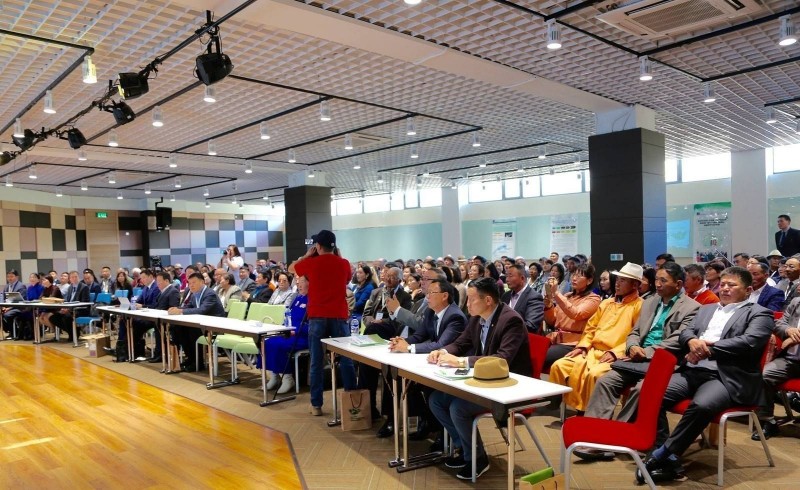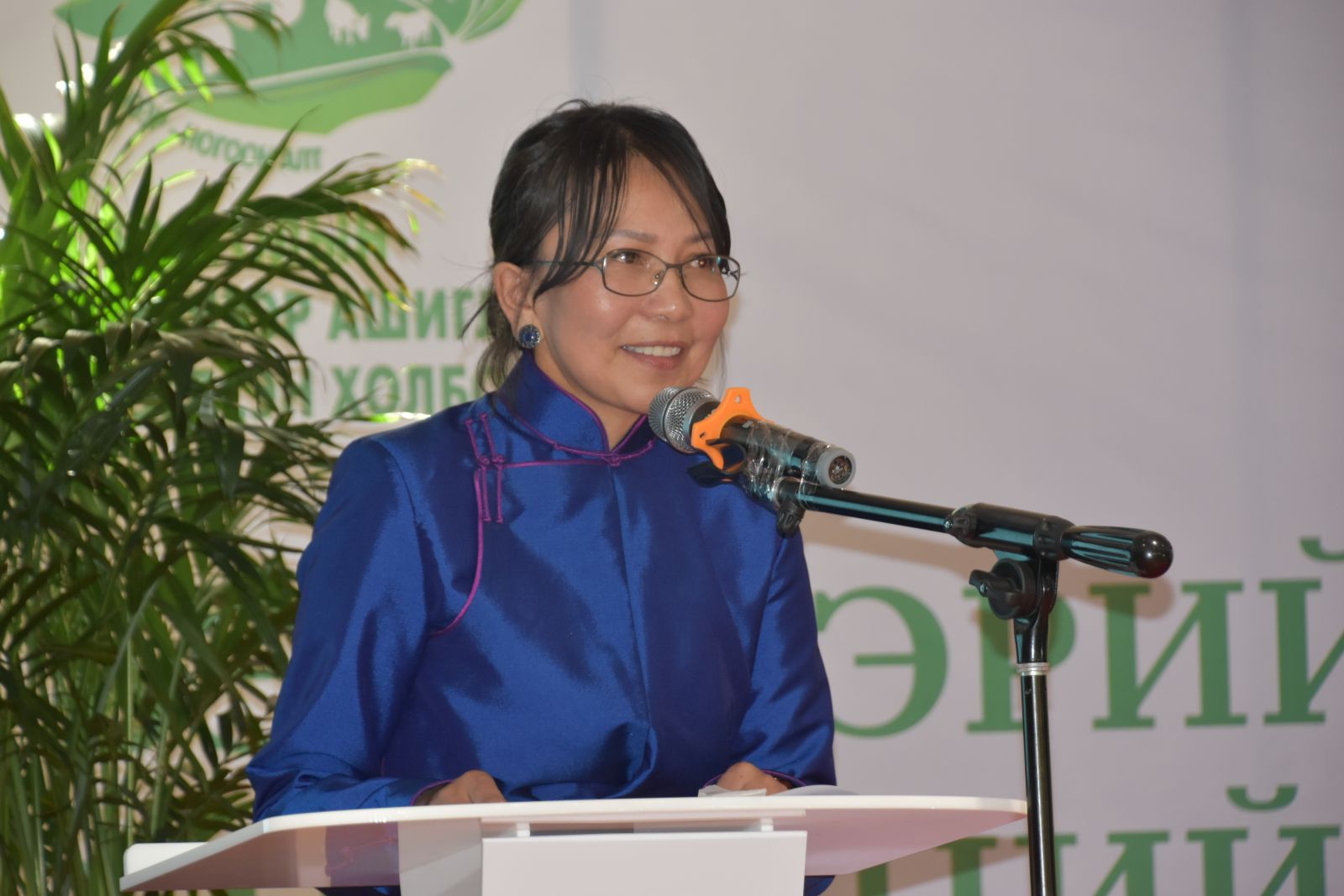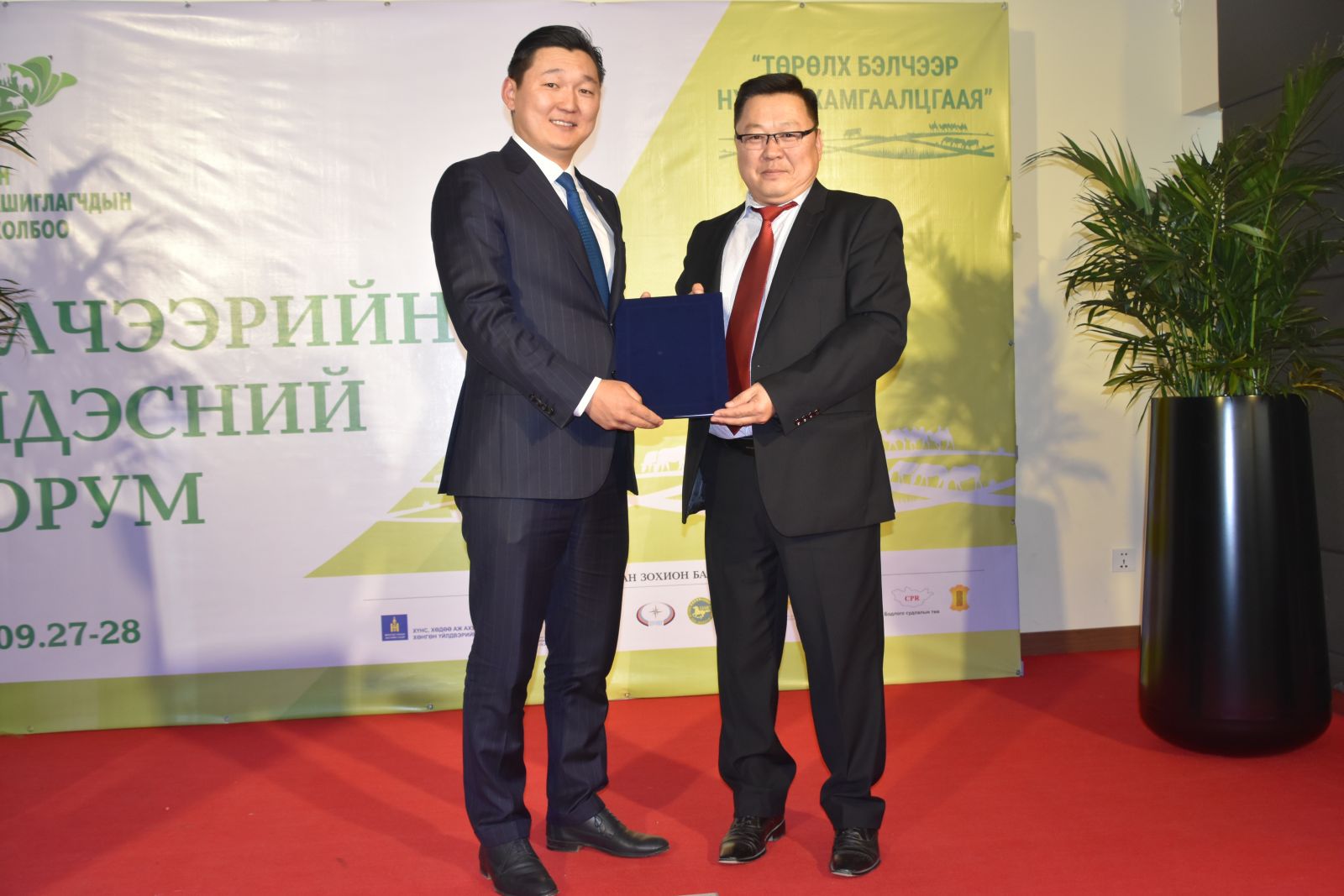Forum
FIRST-EVER NATIONAL RANGELAND FORUM ADDRESSED PRIORITY ISSUES OF SUSTAINABLE RANGELAND MANAGEMENT AND NEED FOR ADOPTING THE LAW

At the initiative of Mongolian National Federation of PUGs, the first National Rangeland Forum was held between 27-28 September. The main objective of the Forum is to create a national platform to provide opportunities for all relevant stakeholders to exchange experiences and ideas, and promote best practices to ensure sustainable use of Mongolian rangelands. More than 250 representatives from governmental and nongovernmental organisations, academic and research institutions, the private sector and the herding community took part in the landmark forum, themed “Caring for our Homeland and Rangelands”, organised by the newly-established Mongolian National Federation of Pasture-User Groups (MNFPUGs).
Key note presentations were given on PUGs and RUA approach strengthening traditional user groups of herders for inclusive and improved grazing management of common seasonal rangelands, Ecological potential based rangeland health monitoring and assessment system established at the Agency of Land Affairs, Geodesy and Cartography, National Agency of Meteorology and Environmental Monitoring. Presentation by well known rangeland ecologist Brandon Bestelmeyer from Jornada Experimental Rangeland Research Unit of USDA-ARS shared international experiences of combining big science and local science and knowledge and the role of nomadic livestock herding for sustainable management is sensitive and fragile ecological system of Mongolian rangelands.
Member of Parliament and member of the Parliamentary Standing Committee for Environment, Food and Agriculture G. Temuulen highlighted the need to address pasture degradation is now a critical national priority and the urgency for creating conducive legislation on rangelands. “Although rangeland management issues are mentioned in some articles of the Constitution, the Law on Land, the Law on Land Fees and other legislation, this has proved to be ineffective in resolving the rangeland problems we are facing,” G. Temuulen said.

“Although there have been dozens of initiatives aimed at enacting a specific law on rangeland management that have been submitted to Parliament in the past two decades, it has not been realised. This indicates a lack of responsibility by the government and politicians, and a lack of capability in tackling priority issues. None of the sector specialists, herders or livestock is to blame. The government has not created a conducive legal environment and productivity-based economic incentives, and this is where the blame lies.”
The Swiss Agency for Development and Cooperation’s Director of Cooperation Gabriella Spirli said 65 percent of Mongolia’s rangeland was degraded. “The situation is alarming as it directly threatens the right to live a decent life for current and future generations of Mongolian herders. The good news is that 90 percent of the degraded land has the capacity to naturally regenerate; however, this is only possible if grazing management is improved and livestock grazing pressure is reduced.”
Ts. Enkh-Amgalan, Coordinator of SDC’s Green Gold-Animal Health Project, highlighted the success of the strengthenining traditional user groups of nomadic herders for the sustainable use of rangeland resources. To date, up to 40,000 herders in 130 soums throughout Mongolia have joined 1400 Pasture-User Groups (PUGs), and have collaboratively entered into rangeland-use agreements and established a responsibility system. There are also now 100 soum associations and nine aimag associations of PUGs, which have formed the Mongolian National Federation of PUGs. She said the project had also developed economic incentives for herders to facilitate market access, and created matching funds to encourage the establishment of herders’ savings and credit cooperatives.

During the forum, the draft law on rangeland was discussed among herders to reflect their opinions and concerns. After such consultation with herders, the MNFPUGs presented the draft law to MP G.Temuulen, a member of the Parliamentary Standing Committee for Environment, Food and Agriculture with the request of submitting the law to the parliament for approval.

The forum was welcomed by herders and PUG representatives. G. Enkhbold, head of the Khuvsgul aimag association of PUGs said: “The event is timely and much needed, given that it determined policy direction, allowed for implementation planning, respected elderly and honorary members, and helped to educate the younger generation, which motivated and made everyone proud of our traditional cultural heritage.”
Ts. Oyun, a herder from Undurshireet soum in Tuv aimag said: “We believe that herders will have a law on rangeland use and will stop having conflicts.”
The forum will be held annually, and the National Federation of PUGs will compete to host the International Rangeland Forum in 2024, which will help showcase Mongolia’s nomadic culture to the world and enable the country to share its experiences in rangeland management.
Forum recommendations:
- Have the draft Law on Rangelands discussed and passed by Parliament.
-
The National Federation of PUGs should support the coordinated activities of PUGs, represent PUGs and protect their interests, support them in contract negotiations, and help them to develop as civil society organisations.
-
Create a conducive environment for cooperatives’ business activities, thereby improving herders’ livelihoods and allocating a percentage of income to rangeland improvement activities.
-
Properly certify livestock products to demonstrate that they are produced on healthy rangelands, are environmentally and animal friendly, are naturally produced, and originate from traditional nomadic culture in order to promote the products on the international market, and to improve rangeland health and the evaluation system to increase the competitiveness of Mongolian agricultural products.
-
Limit soil and rangeland pollution and counter livestock diseases through vaccination and other medical means.
-
Establish a government agency in charge of rangeland issues given that the current roles and responsibilities of rangeland sector organisations are unclear and cooperation is inadequate.
-
Establish a policy advisory group at the National Federation of PUGs to discuss and resolve interdisciplinary issues, such as urgently improving the methodology used to estimate the carrying capacity of rangeland.
-
Improved preparation of rangeland specialists, improved coordination among meteorologists, land managers, engineers, fodder and forage specialists, and environmental specialists, and the upgrading of curricula to ensure it is more practical.
-
Reducing natural fodder preparation and instead supporting the planting of fodder on small land areas to protect the steppe ecosystem, developing a genetic fund of fodder seeds, and increasing fodder production.
-
Reflecting herders’ concerns was finalised at the landmark forum, themed “Caring for our Homeland and Rangelands”




